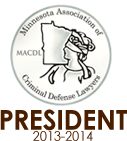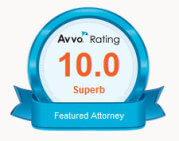Since Minnesota is so close to the border, I am often asked if a person is eligible to enter Canada if they have a Minnesota DWI or similar conviction on their record. The problem is that all felonies and most misdemeanor convictions, no matter how long ago they occurred (including a DWI or DUI or Careless Driving with an alcohol related license revocation), make a person ineligible to enter Canada. But there are three ways to legally enter Canada if you have a criminal conviction on your record:
1. Deemed Rehabilitation;
2. Approval of Rehabilitation by Canadian Consulate in the United States, or;
3. A Temporary Resident Permit.
A PERSON CAN ENTER CANADA IF THEY ARE “DEEMED REHABILITATED”:
A person is “deemed rehabilitated” if:
(a) More than 10 years have elapsed since the completion of their sentence. (For example, if the individual was arrested for DWI in 2000 and was convicted in 2001 but the probationary period did not end until 2005, the individual would not be eligible for “deemed rehabilitation” until 2015), and;
(b) The individual only has one conviction on their record.
“Deemed Rehabilitation” can be determined at any Canadian port of entry but requesting deemed rehabilitation does not guarantee that it will be approved. If you would prefer to know ahead of time if you will be “deemed rehabilitated”, you may apply for rehabilitation at the Canadian Consulate in Detroit, Michigan. Wherever you apply for the “deemed rehabilitation”, you must complete the Rehabilitation Application Form; provide your passport and a copy of your judgment of conviction showing the date of the offense, conviction and that all terms and conditions (including probation) have been completed.
APPROVAL OF REHABILITATION BY THE CANADIAN CONSULATE:
If you are not eligible to be “deemed rehabilitated” because less than 10 years have elapsed or because you have more than one conviction on your record, you may still apply for “approval of rehabilitation” by the Canadian Consulate in Detroit.
To be eligible for “approval of rehabilitation” by the Canadian Consulate:
1. More than 5 years must have elapsed from the completion of your criminal sentence, with proof of same;
2. The Rehabilitation Application Form must be completed.
You must apply for rehabilitation well in advance of your trip to Canada as routine applications can take months to process.
TEMPORARY RESIDENT PERMIT:
If you do not qualify for “deemed rehabilitation” or for the “application for rehabilitation” you may still enter Canada if you have obtained a “Temporary Resident Permit”. You must apply for the temporary residency well in advance of your trip to Canada as routine applications for the Permit can take months to process. Here is a copy of the temporary resident permit.
To be eligible for a temporary resident permit, your need to enter or stay in Canada must outweigh the health or safety risks to Canadian society, as determined by an immigration or a border services officer. Even if the reason you are inadmissible seems minor, you must demonstrate that your visit is justified.
A permit is usually issued for the length of your visit to Canada—for example, one week to attend a conference. You must leave Canada by the expiry date of the permit, or get a new permit before your current one expires.
CANADIAN CONSULATES TO APPY FOR ADMISSION:
Immigration and visa services are only provided by the Canadian Offices located in New York City, Washington D. C., Buffalo, Detroit, Los Angeles, and Seattle. Contact the office closest to you to complete the application process.
ONE TIME FEE EXEMPTION FOR A TEMPORARY RESIDENT PERMIT:
Effective March 1, 2012, Canada announced a policy that allows the grant of a one-time fee exemption for a Temporary Resident Permit for DWI offenders. To be eligible for the one-time exemption the person:
1. Was convicted of an offense and received no term of imprisonment (jail), and;
2. Has no other convictions on his or her record.
This is a one-time fee exemption only. Or as stated by the rule: “The delegated authority should counsel the foreign national that the next time they seek to enter Canada, the fee exemption will not apply and that they should look into potential mechanisms to overcome their inadmissibility”.
For additional information, I highly recommend the Canadian Government’s Website discussing admissibility after conviction for a crime.
Contact Minneapolis DWI Lawyer F. T. Sessoms:
For answers to all of your Minnesota DWI and DUI questions, please call Minneapolis DWI Lawyer F. T. Sessoms at (612) 344-1505 today.
Frequently asked question:
The short answer is “yes” but you should apply for a “temporary resident permit” before making your trip!






